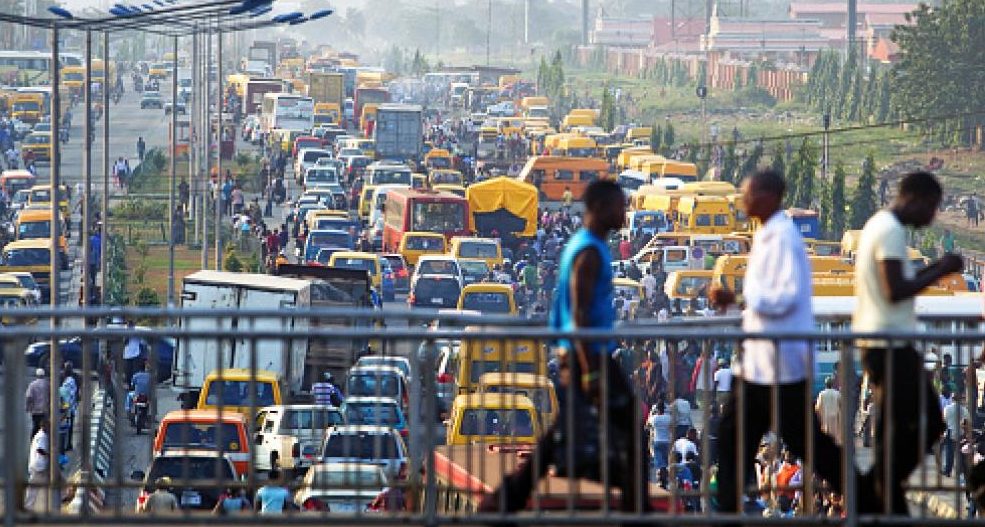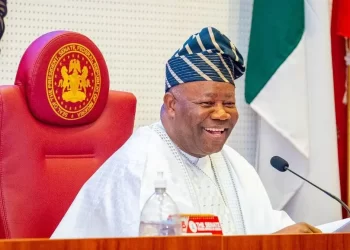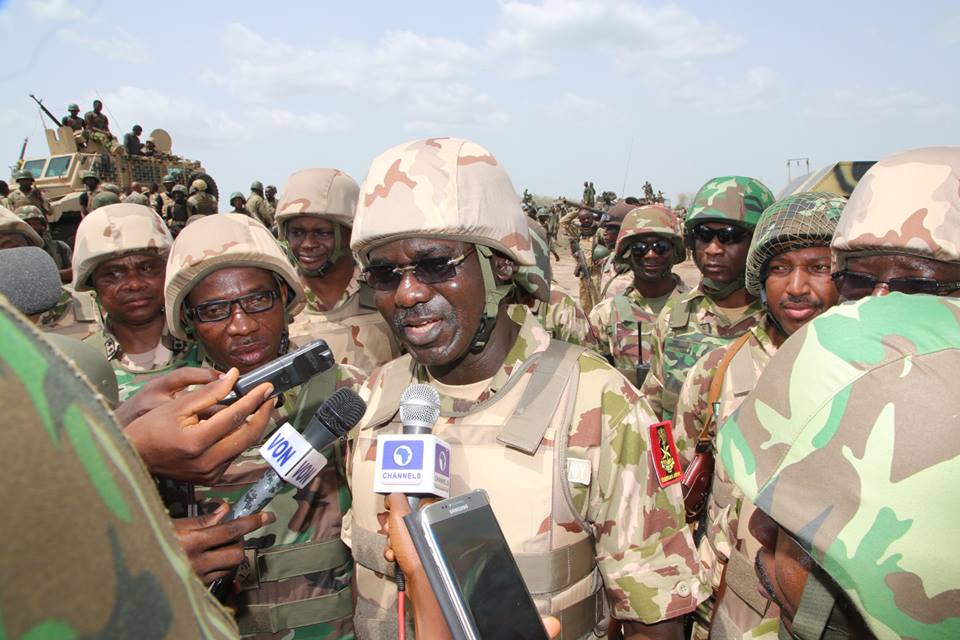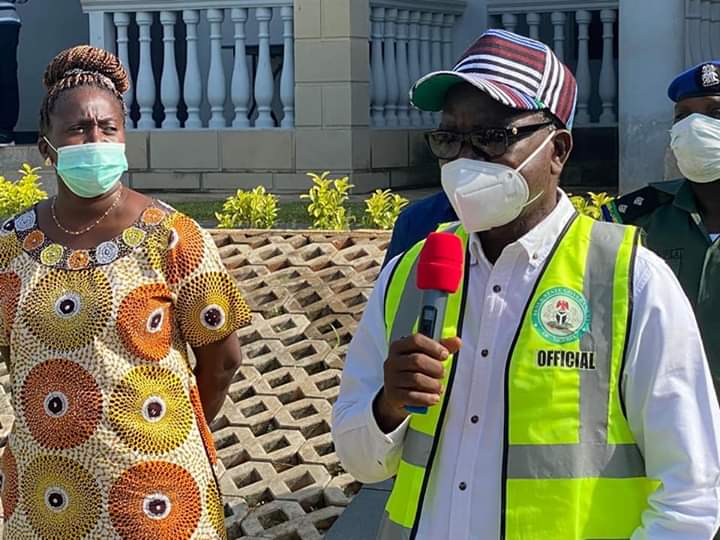Lagos is not a stranger to traffic gridlocks. Lagosians are also usually not fazed by such gridlocks. Any street smart Lagosian can, on a good day, predict the traffic and tell you routes to avoid, when and why. That’s Lagos for you.
However, traffic in Lagos in the past week defied all predictions and permutations as there was no getting away from it especially between July 16 and 20, 2018. For Lagosians, it was a week of stress and strife. Major roads, sides streets and apian ways were all locked down by traffic.
Sharing their experiences with the Next Edition, commuters and transporters called on the state government to come to their aid by repairing the roads and evacuating the tankers and articulated vehicles which have taken over the roads.
Mr. Emmanuel Obua lives at Ikotun-Egbe and works at Challenge, Mushin. For him, getting to work in the mornings was not a problem. The challenge rather, was in going home at the close of work. “I leave home very early (emphasis on very), to beat the traffic. In fact, I attend 6.30am Mass at my Church in Idi-Araba, before leaving for work, so that tells you how early I leave home.
“Getting home after work, however, is the challenge. Normally, I get home around 8pm, but last week, the earliest I got home was midnight. On Tuesday, the 17th, we spent over three hours at a spot without moving and that’s not an exaggeration. I was trying to link the Cele bridge, eventually, when the traffic began to move, I took to the side streets thinking I would cut off the traffic, all to no avail,” he lamented.
He also told the Next Edition that some of his colleagues heading to Apapa and Satellite Town passed the night in their cars as Mile 2 was in a total lock down.
On the cause of the exceptional gridlock, Mr. Obua said, “ I think the major cause is the tankers and articulated vehicles which have taken over the roads in Lagos. Most times, these vehicles leave a small portion of the road to other users. For instance, the expressway which is supposed to be three lanes, these vehicles will take two lanes as their parking lot and leave only one lane for others. Then the bus drivers will block that remaining lane picking and discharging passengers.
“Also, the state of the roads in Lagos leaves nothing to cheer about. The state government is busy building new roads but not paying attention to existing ones. In as much as the government means well, I think the roads should have been taken bit by bit, one after the other, while the government ensured that the existing roads are motorable,” he said.
Speaking further, he said impatience among drivers also contributed to the traffic gridlocks in Lagos. “Everybody is in a hurry. Nobody wants to wait a second for the other person to either pass or join the traffic and in the struggle for right of way, they may scratch their cars and then come down to argue who was right and who was wrong.”
So what is the way out? In responding, Mr. Obua posed a question. “Who owns the tankers and articulated vehicles on the road? Look around you, you will see Dangote trucks everywhere. Even Maersk that you also see everywhere is an American company but who own the trailers parked on our roads? These trucks are not owned by ghosts and government, both Lagos and Federal know these people. If the drivers won’t pack at the designated places, government should sanction their owners or seize the trucks and only release them when the owners pay a stipulated fine, which should be in millions.”
He also urged the state government to pay more attention to road maintenance.
Dr. Ifeyinwa Adegbulugbe, lives at Idi-Araba and works in Victoria Island. This is her experience: “Traffic was horrible, the unpredictable nature of it was the worst. Not knowing what to expect at any turn. Google map has become an extension of my fingers because one is constantly checking the roads to determine the best available route and not be subject to the capricious nature of our highways.
“Some friends did six hours on the roads last week. (Lagos – Heathrow, by car). It’s not healthy to sit for that long. Or imagine the indignity of needing to ease oneself during this journey. It’s a disturbing picture on many levels.”
READ ALSO: BREAKING: 2019: No juicy offer from Presidency, APC to me – Saraki
Not going into who or what is to be blamed for the horror of last week’s traffic, Dr.Adegbulugbe said government should device a better traffic management system.
Mrs. Joy Chimezie, resides at Jakande Estate while her office is at old Ojo Road. For her the experience of the past week was a terrible one. She tells her story: “It was truly terrible last week. Throughout the week, I didn’t get to the office earlier than 11am. Usually, from Jakande, I get to Cele, then Mile 2, from where I take okada to my office. On a good day this takes between an hour and two hours and I spend about N400.
“For last week like I said, it took between four and five hours to get to my office. First there are no buses from Cele to Mile 2 except you want to do one way, that is going against traffic. So instead of doing that I sometimes take bike through Festac to Alakija and then either trek to the office or take another bike. Some times I take bike to Mile 2 and another to the office. In all these, where I used to spend N400 to the office, I spent close to N1, 000, sometimes more, just going.”
According to her, bike from Cele to Mile 2 cost N500 per person and same goes for Mile 2 to Alakija.
Going home, Mrs. Chimezie said, “you get home when you get home. From Mile 2 to Cele, the buses charge N300, a flat rate for any bus stop from there to Oshodi. Most times, the crowd will be so much that one has to trek from there to Cele before getting transportation to his/her final destination. It has been hell, I tell you. You spend so much money and you still don’t get to your house on time.”
She told the Next Edition that the traffic situation can be attributed to the tankers and articulated vehicles parked on the road as well as the deplorable state of the road leading into Apapa also caused by the heavy duty vehicles that ply the road.
She described the situation from Cele going to Mile 2 thus, “you can play football on the road without bothering because you will not be disturbed by any vehicle. It is only bike and pedestrians that you see on the portion of the road left by the tankers.”
Mrs. Chimezie called on the state government to come to the aid of Lagosians and find permanent solution to the menace of the illegally parked tankers.
Mr. Kelechi Odunze, who had cause to go to Victoria Island from his place of abode at Jakande Estate in the course of the week told the Next Edition that after enduring hours of traffic from Obalende to Oshodi and Iyana Isolo, he ended up trekking from Iyana Isolo to Jankande Estate late into the night.
The Next Edition staff was also not spared the experience. Going from Computer Village, Ikeja, to Ilasa, a journey that ordinarily should take about an hour and half, she was stuck in traffic for close three hours.
According to her, after being stuck at the bus stop before her bus stop for almost an hour, she had to alight and trek the remaining distance.
And that was the fate of many commuters in Lagos last week. After paying almost double the usual fare, many still had to complete their journies on foot.
The horror may yet not be over if the misunderstanding between the Nigerian Ports Authority (NPA), and some suspended shipping lines is not quickly resolved.
The Authority had on July 14, suspended four shipping lines, Maersk, Cosco Shipping, APS and Lansal for 10 days as part of efforts to resolve a protest by truck drivers at the Lagos Ports Complex and the Tin Can Island Port.
In a statement, Mr. Isah Suwaid, Assistant General Manager, Corporate and Strategic Communications Division of NPA, said the Authority had in an investigation found that the suspended companies failed to fully comply with the directive to acquire and operate holding bays.
This, he said implied that the companies either failed to utilise their holding bays or do not have adequate capacity to handle the volume of containers that they deal with.
The suspension led more of the tankers and trucks parking on the expressway and other roads contributing to the traffic gridlock.










